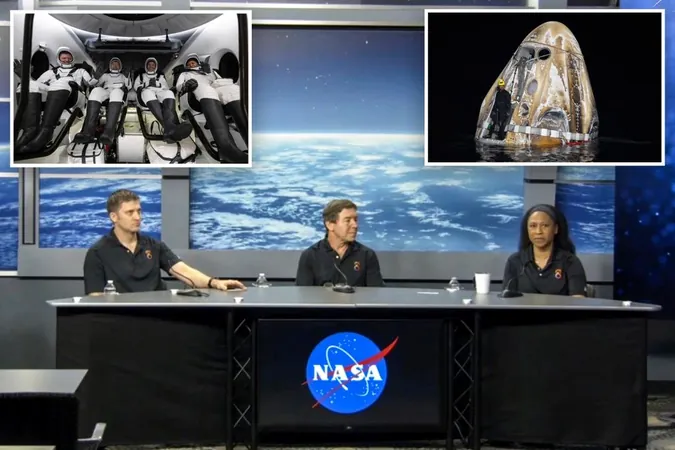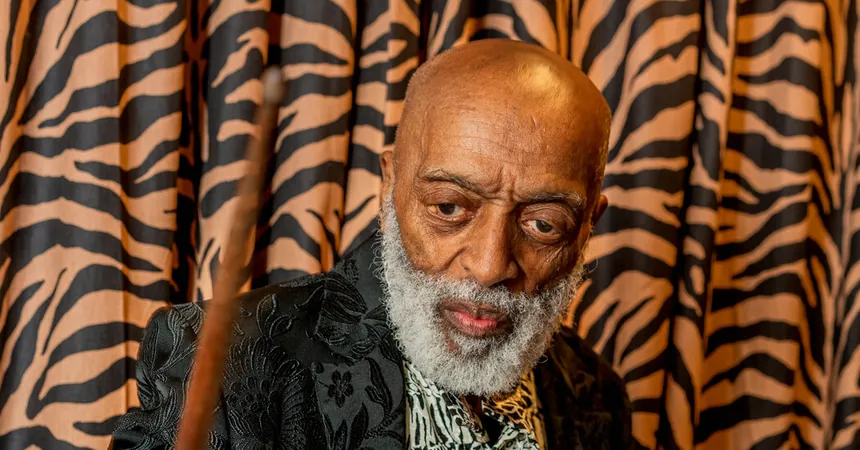
NASA Astronauts Stay Tight-Lipped About Medical Incident on Return from ISS
2024-11-09
Author: Ling
In a recent press conference held two weeks after their splashdown, the trio of NASA astronauts—Matthew Dominick, Michael Barratt, and Jeanette Epps—refused to identify which of them required an overnight stay in a Florida hospital following their seven-month mission aboard the International Space Station (ISS).
After their harrowing descent into the Gulf of Mexico on October 25, all three astronauts were transported to Ascension Sacred Heart Hospital in Pensacola, where one of them experienced a medical episode. However, they cited medical privacy laws as the reason for withholding specific details, with Barratt reassuring the public that all crew members are now in good health.
This unexpected health scare followed an extended stay in space, initially scheduled for an earlier return. Their return mission faced significant delays due to a malfunctioning Boeing Starliner capsule and adverse weather conditions, including Hurricane Milton, pushing their stay to over seven months.
Barratt, a medical doctor with expertise in space medicine, remarked, “Space flight is still something we don’t fully understand. We encounter unexpected challenges—this was one of those instances. We are diligently working to understand how we adapt to and experience human spaceflight.”
He indicated that further details about the medical incident may be revealed in due course.
Meanwhile, two other astronauts, Barry Wilmore and Sunita Williams, remain aboard the ISS. Originally scheduled for an eight-day mission, they have now been stationed in orbit for an astonishing 156 days and are expected to return in February via a SpaceX capsule. Recent images showing Williams’ significant weight loss while on the ISS have sparked concern over her health.
The returning astronauts also shared their experiences with readjusting to Earth’s gravity. Dominick, who served as the mission commander, noted the peculiar challenges they face after long space flights. “I’m a first-time flyer and fascinated by the readaptation,” he remarked. “The effects of gravity are evident in both the expected disorientation and the unexpected discomfort, like sitting on a hard chair.
As the world awaits further revelations regarding their health and experiences in space, this mission continues to highlight the complexities and unknowns of long-duration human space travel. Stay tuned for more updates on the fascinating lives of astronauts and their latest adventures in space!



 Brasil (PT)
Brasil (PT)
 Canada (EN)
Canada (EN)
 Chile (ES)
Chile (ES)
 España (ES)
España (ES)
 France (FR)
France (FR)
 Hong Kong (EN)
Hong Kong (EN)
 Italia (IT)
Italia (IT)
 日本 (JA)
日本 (JA)
 Magyarország (HU)
Magyarország (HU)
 Norge (NO)
Norge (NO)
 Polska (PL)
Polska (PL)
 Schweiz (DE)
Schweiz (DE)
 Singapore (EN)
Singapore (EN)
 Sverige (SV)
Sverige (SV)
 Suomi (FI)
Suomi (FI)
 Türkiye (TR)
Türkiye (TR)